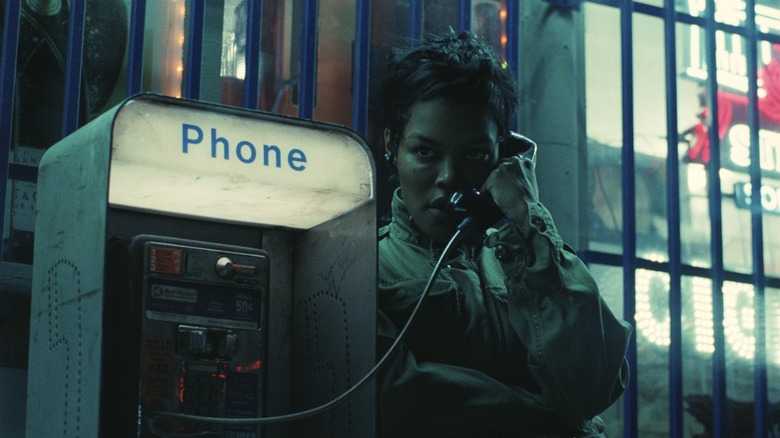One of the highest grossing sci-fi movies was made available on Netflix, and you have probably never even heard of it.
Recently, Netflix announced and commenced its plans to distribute the Chinese blockbuster “The Wandering Earth.” Released in early February, the film is the third-highest grossing film of 2019, the second-highest grossing non-English film of all time, and China’s most successful science fiction motion picture endeavor to date. Yet, in spite of these achievements, Netflix’s decision to offer “The Wandering Earth” through its streaming service has garnered very little publicity and excitement in general. In an effort to understand why, I looked into both the film itself and Netflix’s distribution of it.
“The Wandering Earth,” directed by Frant Gwo, is an interstellar space epic based on a short novel of the same name by Liu Cixian. It is set in the future when the Sun has rapidly transforming into a red giant capable of engulfing Earth. In an effort to save themselves, humanity has attempted to physically move Earth out of the solar system using giant engines. As a result of the departure from the orbit of the Sun, humanity has been forced underground to escape the frozen surface. The film commences with Chinese astronaut Liu Peiqiang (Wu Jing) being sent to a space station that is designated to map the path that Earth will take. He entrusts his son, Liu Qi (Qu Chuxiao) to his father-in-law (Ng Man-tat) and departs, promising to return soon. Seventeen years later, Peiqiang is set to return to Earth. However, his plans are suddenly interrupted when his son is arrested for sneaking onto the surface. Moreover, as the Earth is nearing the orbit of Jupiter, the gravitational pull of the gas giant abruptly disables several Earth engines and begins to pull Earth into its orbit. Though separated by the expanse of space, together the father and son duo attempt to work in tandem to try to save the planet and all of humanity from an apocalyptic destruction.
“The Wandering Earth” is a wonderful cinematic experience that is extremely well-produced. The sets, CGI, and costumes are all meticulously and fantastically constructed. The color grading within the film is bold and rich. Yet, no amount of production can salvage the film’s convoluted writing and less than adequate character development. Not only does Gwo’s film contain almost every single sci-fi and fantasy trope there is, character arcs are confusing and shallow as certain characters seem only to exist to be killed off for dramatic effect. The apocalyptic cataclysm, the integral application of gravity, the apathetic artificial intelligence, the cybernetic military suits, and the space plot — ultimately, the story wound up feeling like a smorgasbord of monumental Hollywood sci-fi films haphazardly stuffed into one movie and packaged with vibrant visual effects. What little original content there is feels contrived and empty. For a Chinese sci-fi film, “The Wandering Earth” relies too heavily on mimicking the prior works and themes of many American films. While the movie may appeal to a Chinese audience unfamiliar with its recurring Hollywood sci-fi tenets, it perhaps might not contain the same sort of allure to their Western counterparts.
Apart from the film itself, Netflix’s distribution and advertising stratagem arguably also played a role in the lackluster fanfare of Gwo’s work. The streaming service released an English dubbed trailer for “The Wandering Earth” and advertised the acquisition of the film over its Asia division social media accounts in February. Yet, beyond these techniques, the company made little effort to draw attention to the official availability of the film to stream. Netflix did not make an official announcement nor did it include the Chinese blockbuster in its monthly list of new entertainment available in May. This is likely in response to the poor domestic performance of the film, which only grossed approximately $5 million across 22 cities in the United States. Thus, in essence, Netflix dumped Gwo’s film onto its site under the assumption that audiences outside China, where Netflix is banned, would have little interest in viewing the film.
“The Wandering Earth” marks China’s first official foray into the science fiction genre of film. Despite its massive success in Asia, the movie has failed to make much of an impact outside of the region. This disconnect can be attributed to both the nature of the film as a bland rip-off of other sci-fi works and also lack of publicity and advertisement that it received from its distributorNetflix. Although it may not necessarily possess a great deal of interest, Gwo’s sci-fi epic is an intriguing work and is worth at least flipping through should one have a subscription to Netflix.
Grade: C-
Director: Frant Gwo
Starring: Qu Chuxiao, Li Guangjie, Ng Man-tat, Zhao Jinm
Release Date: February 5, 2019
Rated: PG-13
Image courtesy of Netflix.















cyberflix • Jul 17, 2019 at 5:24 am
I enjoy this movie a lot and I feel Im blessed to take birth on earth, thank you.
Jennifer • Jul 11, 2019 at 5:51 pm
Es sind maximal 0 von 8 Trophäen erspielbar.